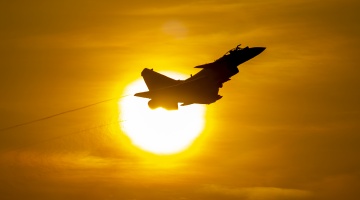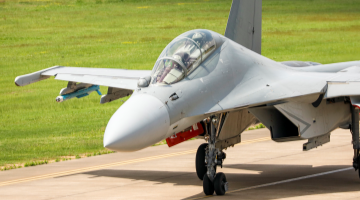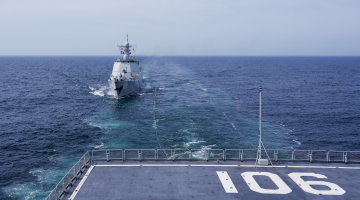By Wang Fudong
Recently, the Korean Peninsula issue has continued to heat up, especially as the ROK has frequently acted on the international stage and held a series of rare large-scale military exercises including the Freedom Shield with the US. This round of US-ROK military exercises has undergone significant changes compared to the previous ones.
First, these military exercises were more aggressive and closer to real combat which underlined targeted attacks instead of mere defense in tandem with smooth administration on their occupied land and other practical scenarios. The US and the ROK also carried out "decapitation strike" and other highly stimulating exercise scenarios.
Second, the exercise lasts a long time. The Freedom Shield military exercise lasted 11 days and was the longest field maneuver exercise in history. A series of exercises were also conducted before and after it, including more than 20 exercises, such as the US-ROK Deterrence Strategy Committee Table-Top Exercise (DSC TTX), the US-ROK joint air drill, the US-ROK Crisis Management Exercise (CMX), the Double Dragons joint landing training, and the "Teak Knife" joint special operations training.
Third, the exercise is large-scale. This round of exercise has resumed the theater-level joint field exercises that have been suspended since 2018, and the Double Dragons landing training participated by the Marine Corps has been expanded to division level. Strategic and advanced weapons such as the US B-52H strategic bomber, nuclear-powered Nimitz-class aircraft carriers, nuclear-powered submarine Springfield (SSN-761), and the B-1B strategic bomber are all out in force.
In early March, ROK President Yoon Suk-yeol announced a state visit to the US on April 26. This is the second time since Biden took office to receive foreign leaders in the form of a state visit. Leaders of the two sides will commemorate the 70th anniversary of the formal establishment of the military alliance between the two countries through this visit.
On March 16, Yoon Suk-yeol visited Japan, and the ROK and Japan announced that they would resume shuttle diplomacy, which had been suspended for 12 years. The two sides will strengthen security cooperation, fully normalize the General Security of Military Information Agreement (GSOMIA) with limited operation during the Moon Jae-in administration, and strengthen security cooperation between the US, Japan and ROK. Japan and the ROK will also strengthen cooperation in the fields of economy, trade, and economic security, focusing on cooperation in the semiconductor industry chain, energy security, and other economic security fields.
The rapid repair of the ROK-Japan relations has opened up key bottlenecks that have hindered the establishment of the trilateral cooperation system between the US, Japan, and the ROK in recent years. Under the manipulation of the US, and under the pretext of the escalation of the DPRK nuclear threat, the trend of coalitions among the three countries in diplomacy, security, economic security and other fields is increasingly evident, with the opposing situation on the Korean Peninsula and in Northeast Asia intensifying, which poses a major challenge to the peace and prosperity of Northeast Asia.
First, the US has increased its military presence in Northeast Asia and continuously upgraded its military cooperation with its East Asian allies, causing security pressure on other countries in the region, breaking the regional military balance, and exacerbating regional security dilemmas. This has led to an arms race among various countries, and the probability of gunfire between the north and south of the Korean peninsula is also rising.
Second, the US has pushed its Japanese and ROK allies to build an economic security alliance and strengthen exclusive cooperation in fields such as semiconductors and new energy, which has undermined the good situation of economic exchanges and regional cooperation in Northeast Asia, one of the most prosperous regions in the world, and reduced the economic well-being of all countries.
Third, the US is to provoke ideological opposition. Under the influence of the US, Japan and ROK emphasize cooperation based on the so-called values of freedom and democracy, deliberately dividing camps and intensifying confrontation, undermining the trend of the post cold war era to dilute ideology and emphasize the harmonious coexistence of mankind.
As the US continues to shift its focus to East Asia and provoke allies and partners to increase pressure on China, regional countries should work together to keep their homes away from the cold war and hot war. In particular, China, Japan, and the ROK with strong comprehensive national strength and close personnel and economic exchanges are supposed to start from historical experiences and lessons to explore a new path of peaceful cooperation and development, rather than repeat the old path of confrontation and conflict.
(The author is an associate researcher at the Institute of International Economics and Politics, Shandong Academy of Social Sciences, and a part-time researcher at the Korean Peninsula Research Center, University of International Business and Economics.)
Editor's note: Originally published on China.com.cn, this article is translated from Chinese into English and edited by the China Military Online. The information and opinions in this article do not necessarily reflect the views of eng.chinamil.com.cn.









